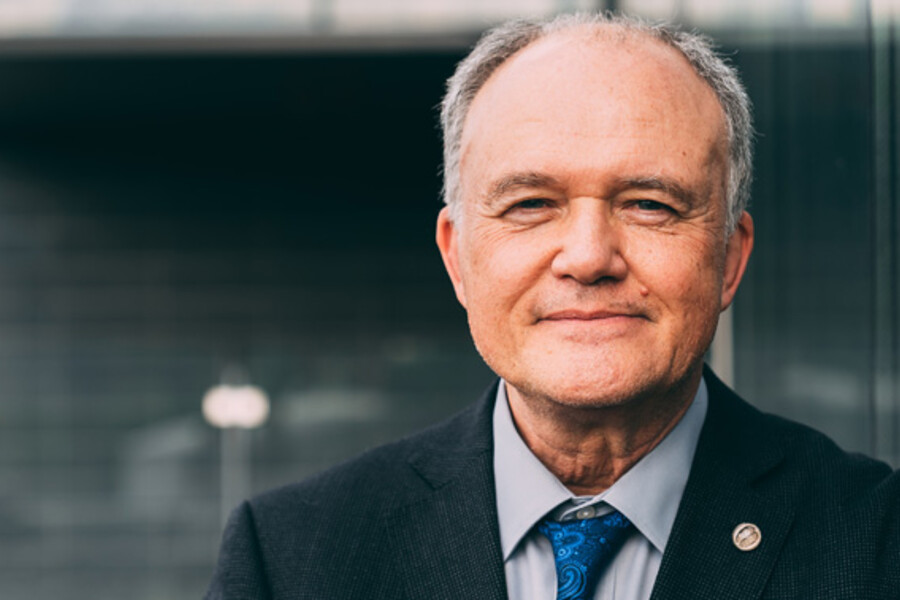Drug Discovery & Domestic Violence Risk Factors in Dementia
Spotlight On: Dr. Donald Weaver
December 4, 2019
The most effective way to address dementia is to tackle it from many different angles. And that’s precisely what the Director and Senior Scientist at the Krembil Research Institute at the University Health Network, Dr. Donald Weaver, does through both his basic science and clinical work.
Dr. Weaver’s basic science research is focused on designing and developing new drugs that will slow or stop dementia. Along with his 40-person research team of synthetic chemists, computational chemists and biologists, Dr. Weaver uses computers to model potential dementia drugs that can enter the brain, bind to toxic proteins, and prevent them from further clumping. Once designed, his team then develops the drugs and performs pre-clinical tests to ensure the drugs function as predicted.
Dr. Weaver and his team are focused on designing drugs that will modify the disease course of dementia. This includes targeting two proteins - β-amyloid and tau - that fold incorrectly and form clumps in the brains of people with Alzheimer's disease, which then block communication between brain cells and eventually kills these cells. Another target is the immune cells in the brain that contribute to increased inflammation in dementia.
“Looking for potential drugs to treat dementia is a much needed area of research,” Dr. Weaver points out, “We have drugs on the market for dementia but they are symptomatic not curative treatments, therefore they are of limited value. The goal is to create a disease-modifying drug that stops dementia in its tracks.”
In addition to his basic science research, Dr. Weaver also has an ongoing clinical project looking at domestic violence as a risk factor for dementia. Sparked by a patient encounter, Dr. Weaver began researching the link by asking people living with dementia in his clinical practice about domestic violence.
“Domestic violence affects 17% of relationships,” Dr. Weaver says, “People who have experienced domestic violence may go on to develop dementia pugilistica, which is similar to what boxers may experience. It’s an issue that needs to be understood and addressed better.”
Bringing together his training in medicine, organic chemistry and quantum mechanics, Dr. Weaver hopes to attack dementia from different angles – by not only looking for new drugs that can treat dementia but also understanding some of the clinical risk factors.
Although Dr. Weaver acknowledges some big challenges facing dementia researchers, such as the lack of blood tests to diagnose dementia and the lack of disease-modifying drugs currently on the market, he is hopeful about the future of dementia research and the impact that families can have in the fight against dementia: “The most important thing is to not give up hope. Despite the challenges, there is room for hope and optimism. It is important to have people with dementia and their care partners support research and if possible, participate in research studies to help us uncover new discoveries and new treatments.”

